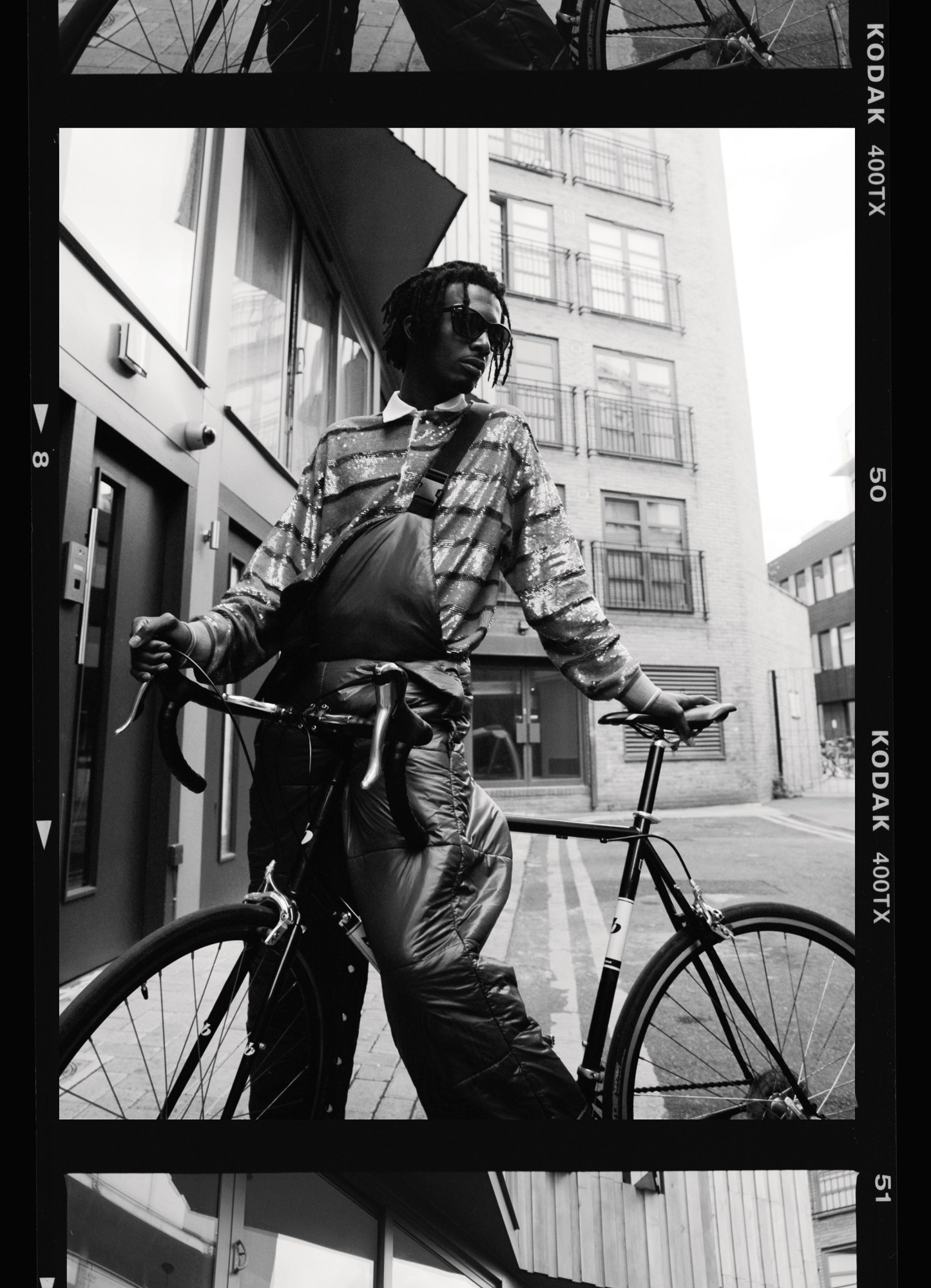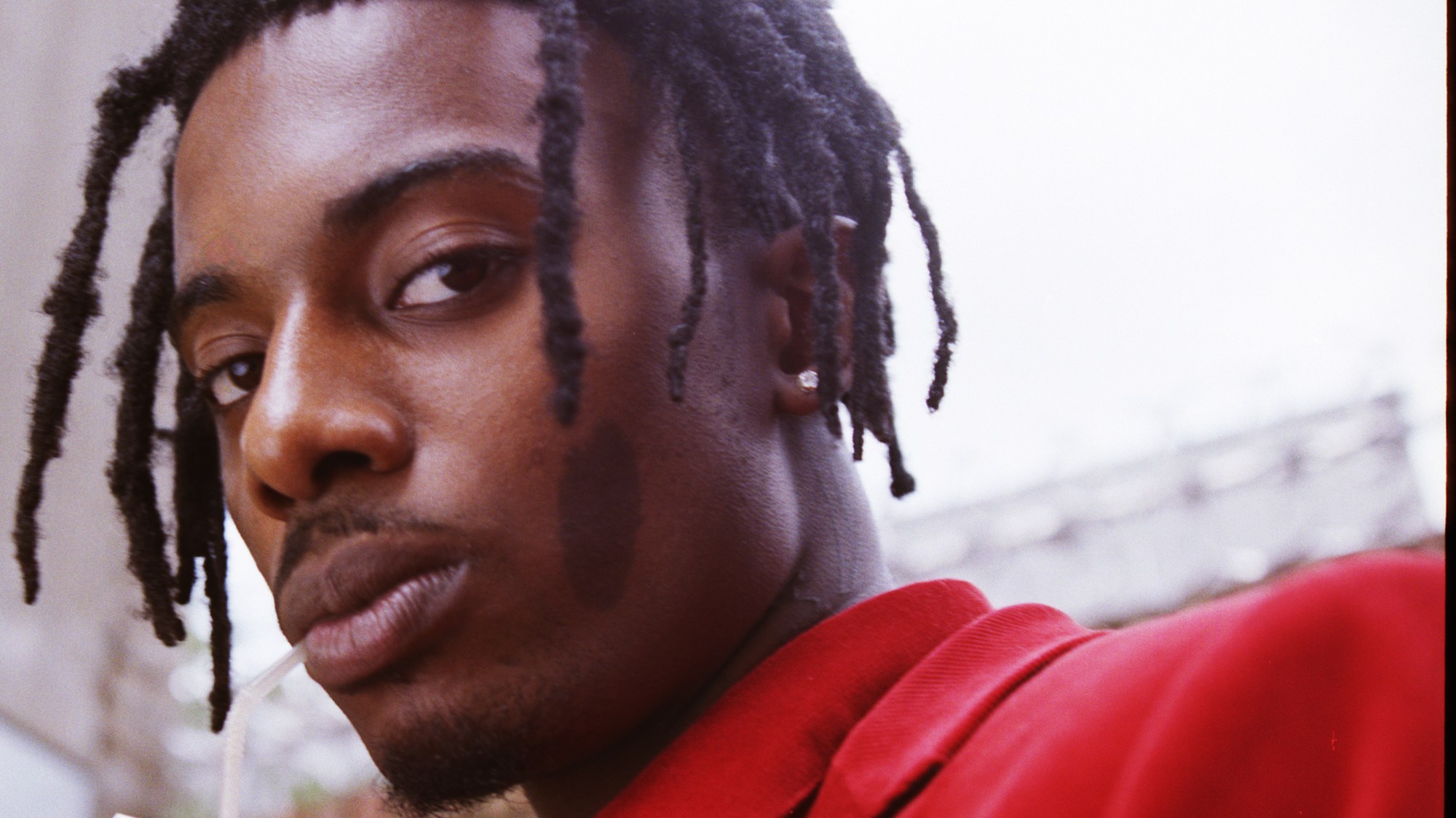This article originally appeared in The Sounding Off Issue, no. 350, Winter 2017.
There’s something pertinent about the way that, on the day Tupac Shakur drew his last breath in a Las Vegas hospital room, some 2000 miles away Jordan Terrell Carter was surveying his surroundings and gulping down his very first. Born in Atlanta, Georgia, on a cool 13th of September 1996, to compare the two is not to say that Carter – better known as the A$AP-fraternising, Magnolia-hit-making Playboi Carti – is the best rapper in the world. No, Carti is, as the New York Times once noted, “more at ease with the performance of the role than with the actual act of rapping.” But, in the way that he draws in everything that floats around the genre in 2017 – the hedonism, the consumerism, the inevitable fashion hookups – and reduces it down to its most potent form, Carti epitomises hip-hop right now, just as Shakur did its 90s golden age.
Just don’t dismiss him as only a rapper. When we meet in a London photography studio, Carti, doe-eyed and high cheekboned (his cheekbones are the only thing higher than him during this interview), is a walking contradiction. He’s the everyman artist out here to make money. The proud Atlantan who hopped on a bus to New York and never looked back. The kind of teenager who, he admits, could have, “been on some real ghetto shit”, but instead took a job in H&M. “I’ve never been the type to sit at home on my ass,” he states. He quit only when his local celebrity reached a point where he was being recognised folding tees. “I feel like I’m part of the new wave, the new sound, the new generation,” he says with unwavering conviction.
“I feel like I’m part of the new wave, the new sound, the new generation.”
Carti’s been making music since he was 14. Schlepping over to a friend’s house and rapping on whatever beats were lying around, the pair would buy better equipment each time their money was up, with Carti, then operating under the moniker Sir Cartier, releasing his Young Misfit mixtape in November of 2012. “I used to just make music for my friends,” he recalls. “I was so influenced by Atlanta culture. I’d go to all the shows and see the local artists and think, ‘I want to do that.’”
Working with Awful Records mainstay Ethereal, he set about amassing the kind of SoundCloud following that becomes difficult to keep in only one place for too long. Together, they turned out tracks including the lean-bleeding YUNGXANHOE and the C-note counting braggadocio of Lost. “Atlanta people give you a chance on the music,” Carti says of the city. But by then the young artist was already plotting his next move. “It’s a cultural movement, man, and once you get that buzz… it’s global, you know what I’m saying?”

Dungarees Christopher Shannon. Top Ashish. Sunglasses model’s own.
Of course, before you take Berlin, you take Manhattan, and so it was for Carti, who headed to New York at 17, fell in with members of the A$AP Mob and got invited to perform at the 2015 edition of SXSW in Austin, Texas, crossing paths with the group’s cocky, commercial heart, A$AP Rocky. “When I saw him I was like, ‘That’s god right there, that’s god,’” Carti says of a rapper who has since taken on the surrogate older brother role in his life. “He told me he liked my music and he fucked with who I was. I thought I was the flyest nigga ever until I met him.”
Within weeks of the meeting, Carti had dropped both Broke Boi and Fetti, his two biggest tracks at that point. He moved around for a time – Orlando, the Bronx, Houston – eventually settling in California, where he says that Rocky taught him about, “Being a man, saving your money, doing shit like this.” “This” being today’s interview, which, despite the presence of A$AP Nast and an entourage of ten, Carti handles with an almost boyish earnestness. Although he continued to release tracks to his SoundCloud page, as well as making largely ad-libbed features on A$AP Mob’s debut album, Cozy Tapes (ad-libbing being Carti’s modus operandi), the lack of a full length release became a running point of discussion in the hip-hop community. “For real, I don’t even know how he famous,” joked friend and collaborator Lil Uzi Vert in a live Q&A back in February. “He don’t even have no tape!”
“It’s our time and you can’t never worry about nobody peeing on you unless it’s your fans. You gotta give it to them raw, because they’re gonna like you for who you are.”
All that talk changed with the release of the Pi’erre Bourne produced sleeper hit Magnolia in June. The third single from his eponymous debut mixtape, Playboi Carti, the track would go on to peak at number 29 on the Billboard Hot 100, inspire a freestyle from Lil Wayne, and earn the co-sign of Jay-Z, who cited the track, alongside Prince and Marvin Gaye, as the only rap song to influence his critically acclaimed 4:44 album. A bouncing, swaggering summer earworm, it served as a lighting rod for Carti, who, after over two years of hype, emerged as the commercial front runner for a wave of hip-hop that’s more concerned with fun, fun, fun than the state-of-the-nation solemnity of more Serious Rap™.
“We just put ourselves in that position,” he says of a carefree new breed that includes self-styled rockstar Lil Uzi, as well as fellow Atlantans Lil Yachty and 21 Savage. “It’s our time and you can’t never worry about nobody peeing on you unless it’s your fans. You gotta give it to them raw, because they’re gonna like you for who you are.” He continues, sucking from a juice box handed to him by a minder. “I feel like for young rappers, just keep going and fuck everybody. The world is ours man, so take advantage of what you’re doing, save your money, stay fly, wear condoms and keep living life, you feel me?”
Credits
Photography Olivia Rose
Styling Bojana Kozarevic
